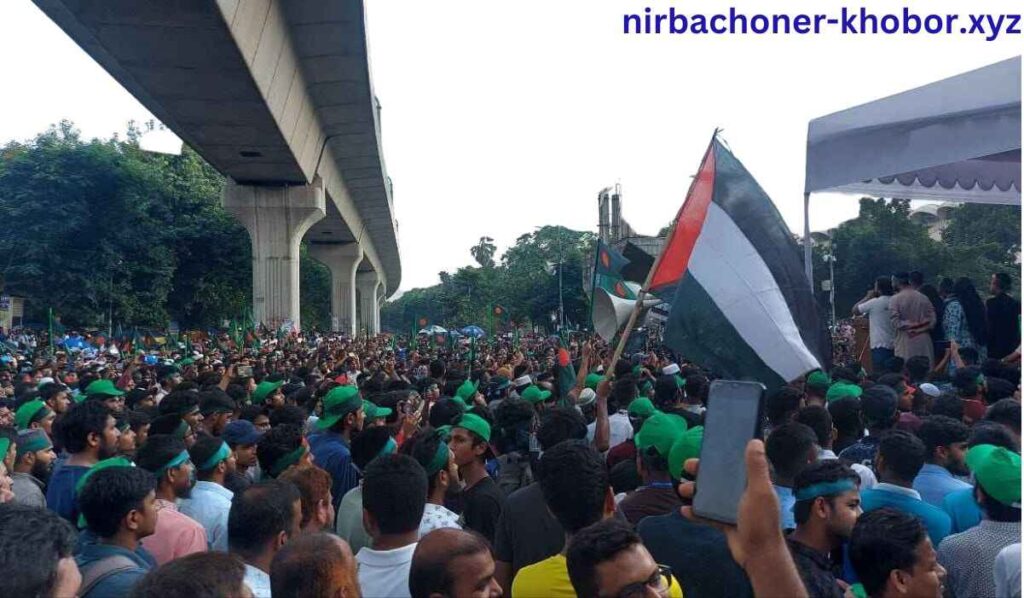As Bangladesh moves closer to the general elections, the political landscape is set for significant transformations. One of the pivotal issues that dominates the national discourse is the formation of an interim government. The importance of an interim government cannot be overstated, as it ensures a smooth and transparent transition of power while maintaining public trust in the electoral process of an interim government. This article delves into the upcoming tasks and challenges facing Bangladesh as it prepares for this crucial phase in its democratic journey.
Understanding the Role of an Interim Government
An interim government, often referred to as a caretaker government, is a temporary administrative setup established to oversee the transition from one elected government to another. Its primary objective is to ensure that the elections are conducted in a fair, free, and transparent manner. In Bangladesh, the concept of an interim government has been a contentious issue, with debates often centered on its composition, powers, and the extent of its neutrality.
Historical Context
Bangladesh’s political history is marked by the establishment of interim governments during election periods. The practice gained prominence after the mass movement in the 1990s, which led to the resignation of an autocratic regime and the subsequent formation of a caretaker government to oversee the elections. This model was perceived as a means to curb the influence of the ruling party during elections, ensuring a level playing field for all contesting parties.
However, the constitutional provision for caretaker governments was abolished in 2011, leading to significant political turmoil. The opposition parties, particularly the Bangladesh Nationalist Party (BNP), have since called for the reinstatement of the caretaker system, arguing that it is essential for free and fair elections.

Upcoming Tasks for Bangladesh’s Interim Government
As the nation braces for the next general elections, the responsibilities of the interim government will be multifaceted and critical in shaping the future of Bangladesh’s democracy. The following are some of the key tasks that will demand immediate attention:
Ensuring Electoral Integrity
The primary responsibility of the interim government will be to ensure that the electoral process is conducted with the utmost integrity. This involves the impartial administration of the elections, from voter registration to the counting of votes. The interim government must work closely with the Election Commission of Bangladesh to ensure that all electoral activities are transparent and free from any form of manipulation or coercion.
Maintaining Law and Order
In a politically charged environment, maintaining law and order is crucial. The interim government must take decisive action to prevent any form of violence, intimidation, or disruption that could undermine the electoral process. This includes deploying law enforcement agencies strategically to areas prone to political unrest and ensuring that all citizens can exercise their voting rights without fear.
Ensuring Media Freedom and Fairness
A vibrant democracy is dependent on the existence of a free and independent media. The interim government must safeguard the rights of the media to report freely on the electoral process, without interference or censorship. Additionally, it must ensure that all political parties receive fair coverage in the media, preventing any form of media bias that could influence the outcome of the elections.
Addressing Economic Challenges
The period leading up to the elections is often marked by economic uncertainty. The interim government will need to address any economic challenges that may arise, such as inflation, currency fluctuations, and investor confidence. By maintaining economic stability, the interim government can prevent any economic disruptions that could affect the electoral process.
Facilitating a Smooth Transition of Power
One of the most critical tasks of the interim government is to ensure a smooth transition of power after the elections. This involves the orderly handover of administrative functions to the newly elected government. The interim government must work closely with all political parties to ensure that the transition is peaceful and that the will of the people, as expressed through the ballot, is respected.
Challenges Facing the Interim Government
While the tasks ahead are clear, the interim government will undoubtedly face several challenges. These challenges must be addressed with a clear strategy to ensure the success of the electoral process.
Political Polarization
Bangladesh’s political landscape is highly polarized, with deep-rooted divisions between the ruling party and the opposition. This polarization can lead to conflicts and disagreements over the role and actions of the interim government. To overcome this challenge, the interim government must maintain a strict stance of neutrality and work towards building consensus among all political stakeholders.
Public Trust and Perception
The success of the interim government largely depends on public trust. If the public perceives the interim government as biased or ineffective, it could lead to widespread dissatisfaction and unrest. The interim government must be transparent in its actions and communicate effectively with the public to build and maintain trust.
International Scrutiny
The international community closely watches Bangladesh’s elections, and any perceived irregularities could result in diplomatic consequences. The interim government must ensure that the electoral process adheres to international standards and that the elections are recognized as free and fair by global observers.
What is the purpose of an interim government in Bangladesh?
The purpose of an interim government in Bangladesh is to oversee the transition from one elected government to another, ensuring that the elections are conducted in a fair, free, and transparent manner.
Why was the caretaker government system abolished in Bangladesh?
The caretaker government system was abolished in Bangladesh in 2011 due to concerns over its effectiveness and neutrality. However, its abolition has been a contentious issue, with opposition parties calling for its reinstatement.
What challenges might the interim government face?
The interim government might face challenges such as political polarization, maintaining public trust, and international scrutiny. Interim Government

